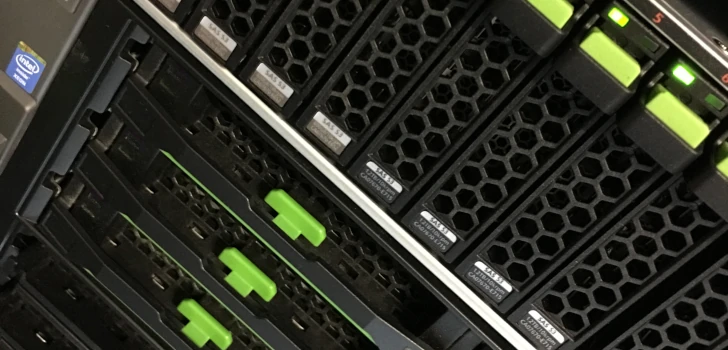
December 29, 2025
After a few years of experimenting, I moved forward with a full electrical system rewiring in my house earlier this year, opting for a KNX-based design.
One of the aspects I really like about KNX is that it is a brand-agnostic protocol, which makes it very easy to find any kind of object compatible with it.
Another aspect that KNX has, different from many other options, is that it is it bus based.
Being bus-based is a huge pain when you have to install it, but once you have done it, the experience is way better, since there is no perceptible delay, no risk of interference, etc., making the day-to-day experience indistinguishable from a traditionally cabled system.
Read More 
November 13, 2025
Earlier this month, I sat the Red Hat EX374 exam to renew my Red Hat Certified Specialist in Developing Automation with Ansible Automation Platform certification.
As I’m already a Red Hat Certified Architect and have passed this same exam a couple of years ago, I wasn’t too worried about it.
Still, it is always interesting to see how exams evolve.
When I registered for the exam, I quickly checked the Objectives and remembered that it covered both Ansible core content (playbooks, modules, roles) and a lot of Ansible Automation Platform (AAP) capabilities, such as controllers, collections, and execution environments.
Read More 
October 16, 2025
Three years passed from the last AWS exam I took, and my AWS certifications were due for renewal.
The first thing I checked was the exam code, which I had taken three years ago.
It turns out that last time I took the SAA-C03, and this time I would also have taken the same exam.
This time around, I considered doing the SAP-C02 instead, but, given the very limited time, I decided on the SAA-C03.
Read More 
September 18, 2025
For years, I hosted this blog and several other services on AWS.
AWS is powerful, but it is also expensive and deeply entropic.
It often feels like every problem on AWS has three different services as possible solutions.
Each service has its own setup, and keeping track of everything just gets harder over time.
For personal infrastructure, the financial and cognitive cost simply stopped being worth it.
That’s why I decided to close my AWS account and move everything somewhere else.
Read More 
August 31, 2025
Last week, I renewed my Red Hat Certified Specialist in Ansible Network Automation (EX457) certification.
As I’m already a Red Hat Certified Architect and have passed this same exam a couple of years ago, I wasn’t too worried about it.
Still, it is always interesting to see how exams evolve.
Since I did not remember the kind of content that was there last time, I read the objectives page and assumed it would have been more on the networking side.
But, in reality, the exam leaned much more toward Ansible playbooks, modules, and automation patterns than network-specific plumbing.
Read More 
June 30, 2025
When buying a service, you’re not just buying what’s on the label.
You’re buying into someone else’s business model.
This aspect is now becoming even more relevant, considering that many times, when buying a product, you are also buying a service with it since there are more and more hybrid products.
If you don’t understand how your provider is structured and how it makes money, you will not fully understand your relationship with them.
And you’re more likely to get blindsided.
Read More 
May 31, 2025
In the coming couple of weeks I’ll be heading to the Common Europe Congress (CEC2025), Flock 2025, and DevConf.cz 2025, some of the best community-driven events in the ecosystem.
If you’re around, let’s catch up and share stories over coffee!
Common Europe Congress 2025 (Gothenburg, June 2–4)
The Common Europe Congress is the largest educational convention for IBM Power users in Europe.
This year it’s taking place at the Gothia Towers in Gothenburg, Sweden.
I’ll be there from June 2nd through the 4th, and I have two sessions lined up:
Read More 
April 30, 2025
If you’ve followed my posts over the years, you know I prefer clean solutions to less clean ones for my home lab (more to come on this!).
Over the past year, I settled on a pattern that gives me the isolation of Kubernetes Namespaces without any of its weight: one private Podman network per application, plus Traefik in a shared “DMZ” network that terminates TLS and forwards traffic where it needs to go.
Read More 
March 31, 2025
For a while now, I’ve been looking into optimizing and reorganizing some of the infrastructure that powers my self-hosting services.
After evaluating a few alternatives, Scaleway’s Dedibox lineup caught my attention: it is a European company with good hardware and decent pricing.
However, as with every good solution, it is not perfect.
Scaleway does not provide Fedora as an OS option for their Dedibox machines.
They offer a decent selection, including Rocky Linux, Debian, and Ubuntu — but no Fedora.
Now, if you know me, you know that Fedora is not just my distro of choice — it’s the one I trust for both personal and professional projects.
Read More 
January 31, 2025
The next few days are shaping up to be packed with open-source goodness!
I’ll be heading to CentOS Connect, FOSDEM, and CfgMgmtCamp, three of the best events in the ecosystem.
These conferences always include a great mix of technical talks, hallway conversations, and spontaneous meetups with friends—both old and new.
If you’re around, let’s catch up!
CentOS Connect (Brussels, January 31)
Although the event run yesterday and today, I’ll only be able to attend today.
CentOS Connect is a small but incredibly valuable event where the wider CentOS community (Fedora, CentOS, and all the Enterprise Linux distros) meets to discuss the space’s present and future.
It’s a great opportunity to meet contributors, learn about upcoming changes, and exchange ideas with people who shape the CentOS ecosystem.
I really like this event because its atmosphere is similar to Flock: very casual and more like a friends’ gathering than a conference.
Read More









